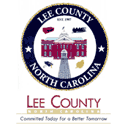Parents, You Are Wise Again
go.ncsu.edu/readext?919628
en Español / em Português
El inglés es el idioma de control de esta página. En la medida en que haya algún conflicto entre la traducción al inglés y la traducción, el inglés prevalece.
Al hacer clic en el enlace de traducción se activa un servicio de traducción gratuito para convertir la página al español. Al igual que con cualquier traducción por Internet, la conversión no es sensible al contexto y puede que no traduzca el texto en su significado original. NC State Extension no garantiza la exactitud del texto traducido. Por favor, tenga en cuenta que algunas aplicaciones y/o servicios pueden no funcionar como se espera cuando se traducen.
Português
Inglês é o idioma de controle desta página. Na medida que haja algum conflito entre o texto original em Inglês e a tradução, o Inglês prevalece.
Ao clicar no link de tradução, um serviço gratuito de tradução será ativado para converter a página para o Português. Como em qualquer tradução pela internet, a conversão não é sensivel ao contexto e pode não ocorrer a tradução para o significado orginal. O serviço de Extensão da Carolina do Norte (NC State Extension) não garante a exatidão do texto traduzido. Por favor, observe que algumas funções ou serviços podem não funcionar como esperado após a tradução.
English
English is the controlling language of this page. To the extent there is any conflict between the English text and the translation, English controls.
Clicking on the translation link activates a free translation service to convert the page to Spanish. As with any Internet translation, the conversion is not context-sensitive and may not translate the text to its original meaning. NC State Extension does not guarantee the accuracy of the translated text. Please note that some applications and/or services may not function as expected when translated.
Collapse ▲I am a parent of two emerging adults. If you caught my article last month about parenting skills, you would have heard that term before. It is a fairly new theory of development that applies to our youngest adults, beginning in their late teens to mid/late twenties. These individuals are relatively independent but not yet holding the responsibilities largely associated with adulthood, like mortgages and children.
In the 1970s in America, it was common to be married by the age of twenty-one. Seven years later, the age had moved to twenty-five. More Americans attend tech school, college, or university than ever, prolonging gainful employment.
Today’s newest adults are continuing this trend of postponing enduring responsibilities, somewhat evidenced by the average age of marriage now approaching thirty. We can say they are approaching adulthood but are not yet into the developmental stage that follows adolescence, young adults.
Emerging adults are in a period of testing and exploration in areas of love, career, identity, and worldview. They may live at home (or return home) and be financially and emotionally dependent on caregivers at some level. But this time is full of change and instability. These adults have a unique freedom from authority with fewer of the responsibilities that encumbered the generations before them. Therefore, they are more socially experimental and likely to engage in risky behaviors.
Emerging adults require caregiver support. They are making significant decisions that will affect the rest of their lives. It can be a stressful and complex time, even harder for emerging adults who do not have the support of at least one caring adult in their life.
Caregivers should support the well-being of the emerging adults they are launching. Offer stability and reliability. This means we are not finished parenting on that eighteenth birthday. We will continue to be called upon for advice and support. This may be a listening session, a counseling session, or an invitation to give advice, but take care; unfollowed advice does not mean it wasn’t considered as a viable option. Keep those communication lines open.
The words of Mark Twain ring true, “When I was a boy of 14, my father was so ignorant I could hardly stand to have the old man around. But when I got to be 21, I was astonished at how much the old man had learned in seven years.”
Use your newfound wisdom to meet your goal. It remains the same as the day the child was born; to help grow a well-functioning member of society. You are not there, but you are in the final stretch!
For information and resources on this topic, please contact Pam Kerley, the 4-H Program Assistant for North Carolina Cooperative Extension, Lee County Center. 4-H is a positive youth development program offering programs that suit a variety of backgrounds, interests, budgets, and schedules. From in-school to after-school, clubs to camps, 4-H programs are available in Lee County, and we welcome children who want to have fun, learn and grow. In North Carolina, 4-H is brought to you by the NC State Cooperative Extension. N.C. Cooperative Extension’s experts and educators share university knowledge, information, and tools you can use daily to improve your life.




